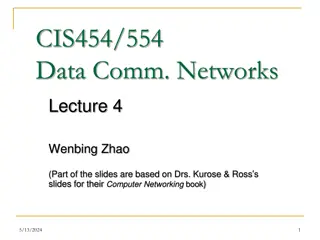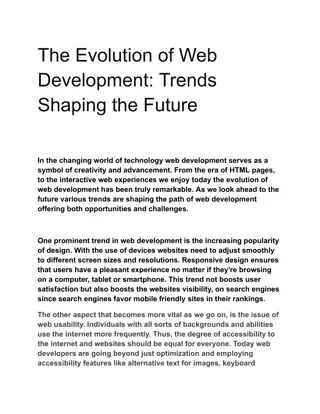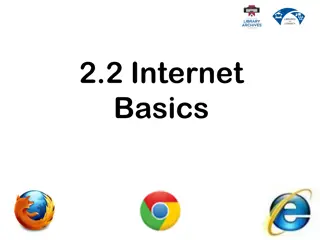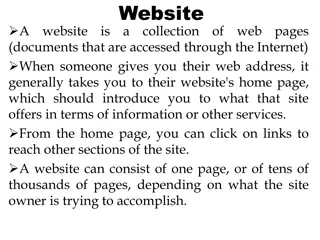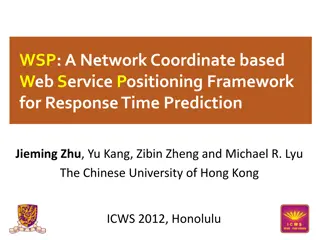
Social Perception Studies: Effects of Attribution and Persuasion on Behavior
Explore the impact of attribution and persuasion on behavior through social perception studies. Discover how attributing characteristics to individuals can create lasting changes compared to persuasive techniques. Delve into how implicating the self prevents unethical behavior and consider lingering questions about self-perception in various social contexts.
Uploaded on | 0 Views
Download Presentation

Please find below an Image/Link to download the presentation.
The content on the website is provided AS IS for your information and personal use only. It may not be sold, licensed, or shared on other websites without obtaining consent from the author. If you encounter any issues during the download, it is possible that the publisher has removed the file from their server.
You are allowed to download the files provided on this website for personal or commercial use, subject to the condition that they are used lawfully. All files are the property of their respective owners.
The content on the website is provided AS IS for your information and personal use only. It may not be sold, licensed, or shared on other websites without obtaining consent from the author.
E N D
Presentation Transcript
WEB OF SCIENCE Shanna Harvey Psychology 1100H
ATTRIBUTION VS PERSUASION AS A MEANS FOR MODIFYING BEHAVIOR Chapter 13, Page 513, Seeing Ourselves Through the Eyes of Others Between-groups experiment by Richard Miller et. al Littering rates among 5thgraders in a public school in Chicago Attribution Condition one class was told they were already neat and tidy Persuasion Condition one class was encouraged to become neat and tidy Control Condition one class was given no treatment Also tested with math scores Results show that attribution is much more effective than persuasion both immediately and in the long run
ATTRIBUTION VS PERSUASION Page 513
WHEN CHEATING WOULD MAKE YOU A CHEATER: IMPLICATING THE SELF PREVENTS UNETHICAL BEHAVIOR Between-groups experiment by Christopher Bryan et. al Assigned to cheater or cheating groups Think of a number between 1 and 10 (without revealing) Students told they would receive $5 for an even number, nothing if it was odd Results: cheater group 20% reported having an even number cheating group 50% reported having an even number In subsequent experiments, the implication of the self ( cheater groups) show a lower rate of winning the game, which indicates a lower rate of cheating
RELEVANCE TO THE CLASS AND SOME LINGERING QUESTIONS Both studies deal with social perception of ourselves and others, and the short-term and long-term effects these perceptions have Each demonstrate the Pygmalion effect (others expectations have an affect on self-concept and behavior) Basis of anxiety (mental disorders chapter later on) Do our self-perceptions continue to be affected by others as we become older (60+ years)? Is gender a factor in the level to which self-perception is affected by others?
REFERENCES Afzali, Sarina. Effects of Attribution versus Persuasion. Persuasion and Influence. Self Attribution Effect of Success. 13 March 2015, http://persuasion- and-influence.blogspot.com/2015/03/self-attribution-effect-of-success.html Bryan, Christopher J., Gabrielle S. Adams, and Beno t Monin. "When Cheating Would Make You a Cheater: Implicating the Self Prevents Unethical Behavior." Journal of Experimental Psychology: General, vol. 142, no. 4, 2013, pp. 1001-1005. OhioLINK Electronic Journal Center, doi:10.1037/A0030655. Miller, Richard L., Philip Brickman, and Diana Bolen. "Attribution versus persuasion as a means for modifying behavior." Journal of Personality and Social Psychology, vol. 31, no. 3, 1975, pp. 430-441. OhioLINK Electronic Journal Center, doi:10.1037/H0076539

